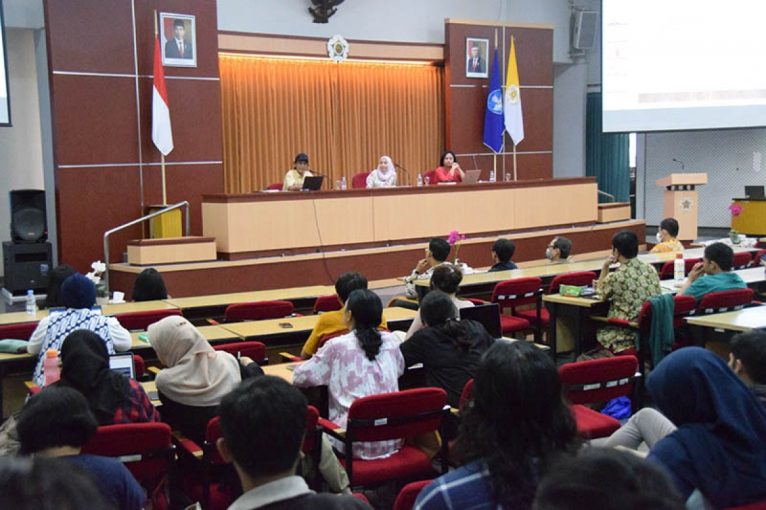


Lecturer of Cultural Studies and Media Program (KBM Program), Prof. Dr. Heru Nugroho, published a book entitled “Proliferation of Critical Social Thought” in December 2023. Prof. Heru, along with Andreas Budi Widyanta, Ragil Wibawanto, and Rizqyansyah Fitramadhana, wrote critical thoughts in response to the developments of digital practices and the neoliberal economic-political transformation.
The book discussion event on this book was organized by the KBM Program as a platform to facilitate the dissemination of faculty and student works. The event took place on Tuesday (23/04), at the 5th-floor Auditorium of the Graduate School, UGM building.
“When we do something, it is always based on faith. Critical thinking is the faith used in writing this book. I learned critical theory for the first time from my teacher, Mr. Ignas Kleden,” said Prof. Heru.
Spanning 314 pages, the book criticizes the post-reform era life that leans towards neoliberalism and moves away from democracy. Readers are invited to critically think about current issues, whether policies are truly in favor of the people. Moreover, critical thinking should also be introspective, reflecting on oneself. What solutions and concrete actions can we take to solve existing problems?
“The anxiety about the future needs to be criticized so that life can be more peaceful and still celebratory. I am glad to meet colleagues with the same anxieties. Through this book, we collectively think about the future anxieties so that they do not become a burden alone,” added Andreas Budi Widyanta.
Prof. Dr. Wening Udasmoro, the Professor of Literature and Gender Studies who currently serves as the Vice-Rector for Education and Teaching at UGM, attended as a discussant at the book discussion event. Acting as the moderator, Nurul Fitri Hapsari, a doctoral student at the KBM Program, guided the event through three sessions: author presentations, book discussions, and participant Q&A.
One of the criticisms in the book is the issue of governance as rulers who regulate various policies, seemingly providing choices but in reality, forcing the public to choose. “Governance is in a way try to control, regulate, limit, and direct human activities. Currently, policies are given based on algorithmic thinking with promises of technological progress. This situation gradually erodes critical thinking,” said Prof. Wening.
Furthermore, Prof. Wening urged readers to reflect on what is the content of the book by reviving our critical thinking as academics to avoid being trapped by the government’s algorithm. The book discussion concluded with a participant Q&A, and two lucky questionnaires received books published by the KBM Program as present.
Author: Asti Rahmaningrum
Image: Latif Nuriyawan
